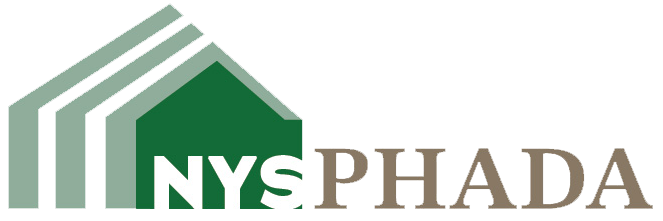About Us
About NYSPHADA
For nearly three decades, NYSPHADA has proven successfully that public housing authorities, united together, are stronger than alone. We are proud to claim a membership of 73 public housing authorities from across the State of New York.
NYSPHADA provides educational programs on topical issues at our two State-wide annual meetings and on an as-needed basis. National experts from across the country teach us how to continue to fulfill our important missions in this era of budget austerity.
William Simmons
About NYSPHADA’S Board President
William J. Simmons, Esq. is the Executive Director of Syracuse Housing Authority (SHA), responsible for upholding the housing authority’s mission and vision of providing quality, safe and affordable housing, and the overall empowerment and self-sufficiency of its residents. At the housing authority, he oversees 2,440 public housing units, 184 tax credit units, 97 units of affordable housing, and the administration of contracts for approximately 3,600 rental units as part of the Authority’s Housing Choice Voucher Program (Section 8).
A native of Bronx, NY, Simmons has resided in Syracuse since 1975. His diverse career includes serving as Director of Airport Services at Syracuse Hancock International Airport from 1986 to 1994, Board Commissioner for the Syracuse City School District from 1989 to 1997, and 5th District Syracuse Common Council Member from 2000 to 2008. Simmons earned his Juris Doctor from Syracuse University College of Law in 2004, was admitted to the New York State Bar in 2006, and obtained his New York State Real Estate Broker’s License in 2019.
During his tenure at SHA, he has been responsible in driving development with revolutionary projects such as building the 50 Homes of Syracuse, where he utilized low-income housing tax credits (LIHTC) to provide a path to home ownership for low-income families, completed a $7.2 million rehabilitation of the Leonard Buildings using a sophisticated subsidy layering method, and most recently developed Freedom Commons, a LIHTC, LEED Gold Certified, mixed-income, development that provides emergency, transitional, affordable, and supportive housing to residents of the Syracuse community to reduce recidivism and improve public safety.
In addition to his role as Executive Director, Simmons serves as a Board Trustee for the Public Housing Authorities Directors Association (PHADA), Board President of the New York State Public Housing Authority Directors Association (NYSPHADA), Board Director for the Center for Community Alternatives, Board Director for the University Hill Corporation, Board President of the Dunbar Association, and Board Director for CenterState CEO.
Mission
NYSPHADA provides professional development, support, and networking for public, affordable, and mixed-income housing. We advocate for legislation that supports the operation, preservation, and development of affordable housing for our members and residents.
Goal
To promote and protect the public and assisted housing industry. We work together to craft and implement effective strategies to influence State and Federal policymakers. We also serve each of our members through educational opportunities, networking and information sharing.
Leadership
NYSPHADA’s 12 elected Board members guide policies on organizational, State, and Federal issues. Four seats are elected annually for three-year terms. The Board represents public housing authorities across New York. Leadership ensures members' interests are protected, even without direct participation.
Meet Our Board Members
Meet our dedicated board members who guide our mission and vision. Their expertise and leadership drive our efforts to improve public housing across New York State.

William Simmons
President
William J. Simmons, Esq. is the Executive Director of Syracuse Housing Authority (SHA), responsible for upholding the housing authority’s mission and vision of providing quality, safe and affordable housing, and the overall empowerment and self-sufficiency of its residents. At the housing authority, he oversees 2,440 public housing units, 184 tax credit units, 97 units of affordable housing, and the administration of contracts for approximately 3,600 rental units as part of the Authority’s Housing Choice Voucher Program (Section 8).
A native of Bronx, NY, Simmons has resided in Syracuse since 1975. His diverse career includes serving as Director of Airport Services at Syracuse Hancock International Airport from 1986 to 1994, Board Commissioner for the Syracuse City School District from 1989 to 1997, and 5th District Syracuse Common Council Member from 2000 to 2008. Simmons earned his Juris Doctor from Syracuse University College of Law in 2004, was admitted to the New York State Bar in 2006, and obtained his New York State Real Estate Broker’s License in 2019.
During his tenure at SHA, he has been responsible in driving development with revolutionary projects such as building the 50 Homes of Syracuse, where he utilized low-income housing tax credits (LIHTC) to provide a path to home ownership for low-income families, completed a $7.2 million rehabilitation of the Leonard Buildings using a sophisticated subsidy layering method, and most recently developed Freedom Commons, a LIHTC, LEED Gold Certified, mixed-income, development that provides emergency, transitional, affordable, and supportive housing to residents of the Syracuse community to reduce recidivism and improve public safety.
Presently, and for the past 10 years, William Simmons has played an integral role in shaping the New York State Department of Transportation’s (NYSDOT) plans for the redevelopment of the Interstate 81 (I-81) viaduct, which has divided SHA’s Pioneer Homes public housing neighborhood since the 1950s. Recognizing the significant impact NYSDOT’s decision would have on the region’s future, Simmons and SHA launched a proactive neighborhood planning process in 2015. This involved extensive meetings with residents, community stakeholders, and elected officials, resulting in the Preferred Concept Plan. The plan calls for mixed-income housing, mixed-use developments, and a vibrant commercial corridor to reconnect and reinvigorate the urban core.
The Preferred Concept Plan laid the foundation for what is now the East Adams Neighborhood Transformation Project, encompassing over 1,000 public housing units across 118 square acres, largely owned by SHA. Under Simmons’ leadership, the project has secured a landmark $50 million U.S. Department of Housing and Urban Development (HUD) Choice Neighborhoods Implementation (CNI) Grant, the first-ever awarded in New York State. This grant is part of a broader $1.2 billion investment initiative that includes federal, state, county, city, private, and philanthropic contributions. The Transformation Project will not only revitalize the Historic 15th Ward but also create a vibrant, mixed-use, mixed-income community with enhanced housing, education, economic, and health opportunities. Simmons and other community leaders will continue to guide the resident-driven Master Planning process to ensure that the needs of existing residents are addressed while improving the neighborhood for generations to come.
In addition to his role as Executive Director, Simmons serves as a Board Trustee for the Public Housing Authorities Directors Association (PHADA), Board President of the New York State Public Housing Authority Directors Association (NYSPHADA), Board Director for the Center for Community Alternatives, Board Director for the University Hill Corporation, Board President of the Dunbar Association, and Board Director for CenterState CEO.

Denise Brooks
Vice President of Professional Development on the Board
Denise has over 22 years of executive experience in public housing. She previously served as Assistant and Deputy Director before stepping in as interim ED/CEO, leading the agency's revitalization program, including Phases 2 and 3 of the Winbrook campus transformation. Denise aims to create an efficient organization focused on affordable housing, transparency, and strong partnerships with residents.
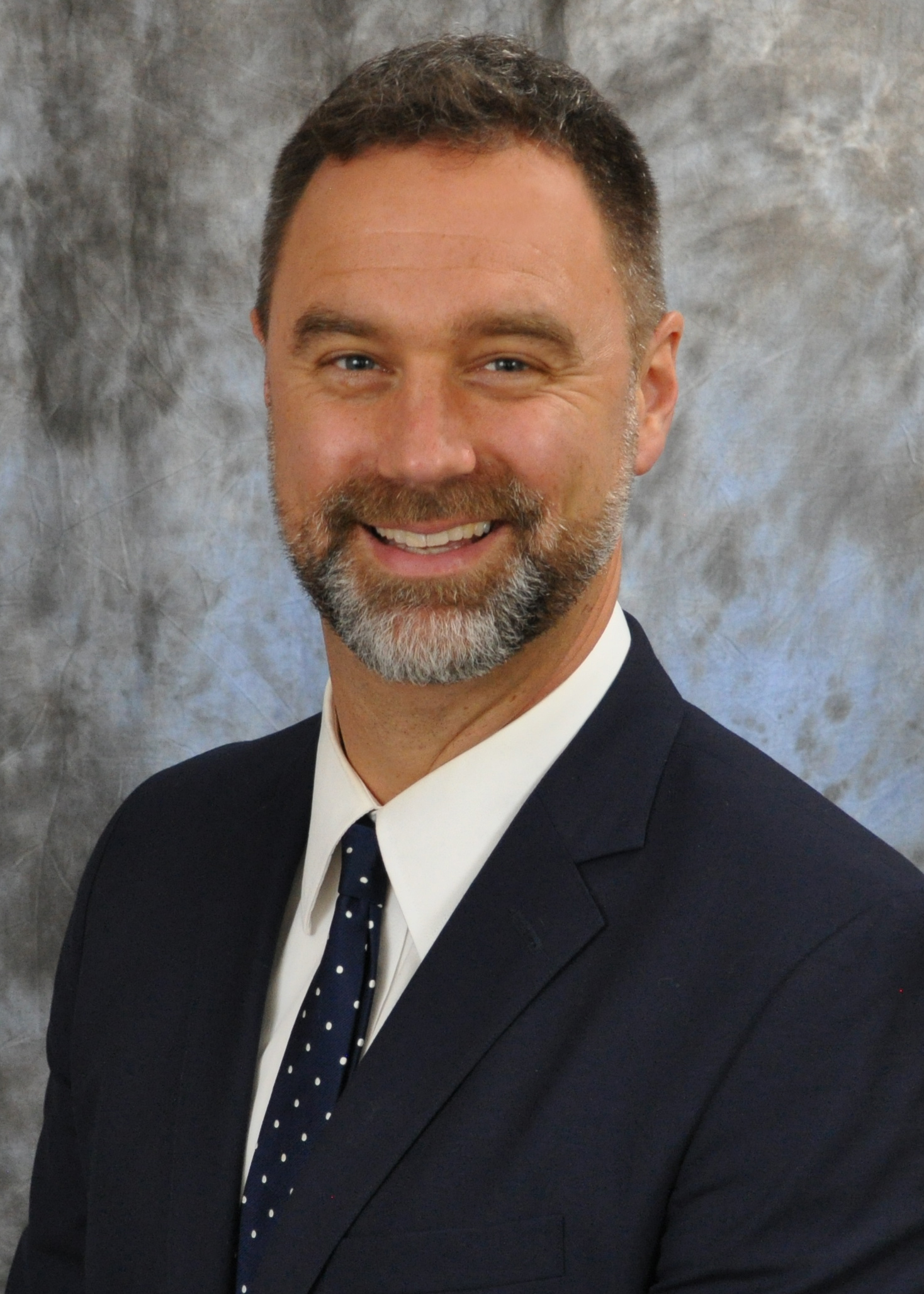
Nathan Varland
Director of the Batavia Housing Authority
Nathan Varland is the Director of the Batavia Housing Authority, a small organization in Western New York. His career has centered around helping people.

Mark Hamilton
Vice President of the Legislative Committee on the Board
Mark Hamilton is the Executive Director of the Plattsburgh Housing Authority. Previously, he was a teacher, Dean of Students, and Assistant Principal at Peru Central High School. He also worked as an Executive Recruiter for Fortune 500 companies in Los Angeles. Mark serves on multiple boards, including NYSPHADA, Peru Central School District, and several local organizations, and is the Fair Housing Officer for Plattsburgh. He is also a partner in HamilSun community solar.
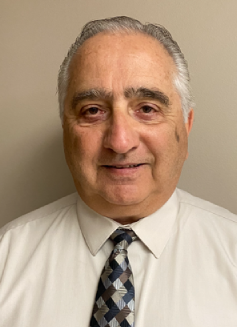
Richard Dowe
Executive Director Herkimer Housing Authority
Richard Dowe, Executive Director for the Herkimer Housing Authority, now called Stone Ridge Residences since 2011. Dick has worked for not-for-profits for several years prior with a Master's Degree in Management and Urban Professions from The New School, a Bachelor of Science degree from Syracuse University, and a graduate in the EDEP program from Rutgers University. Richard is married and has three children and nine grandchildren. Presently, serves on the NYSPHADA board as Treasurer.

Chiquita D’Arbeau
Executive Director, Albany Housing Authority
Chiquita D’Arbeau serves as the Executive Director of the Albany Housing Authority (AHA), a role she has held since 2020. With more than 25 years of experience in public and affordable housing, she has dedicated her career to strengthening communities through housing development, resident services, and organizational leadership.
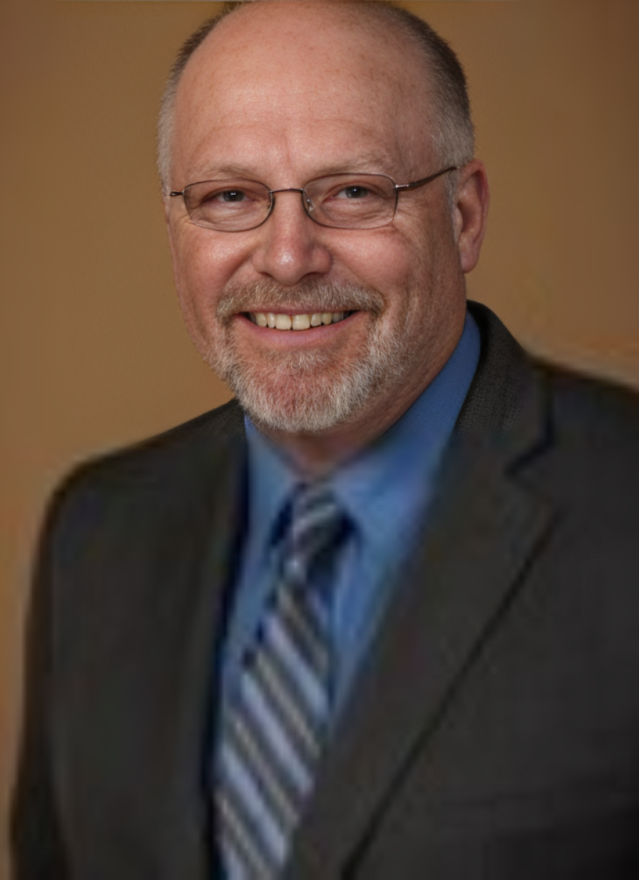
Shawn Burr
Executive Director, Rochester Housing Authority
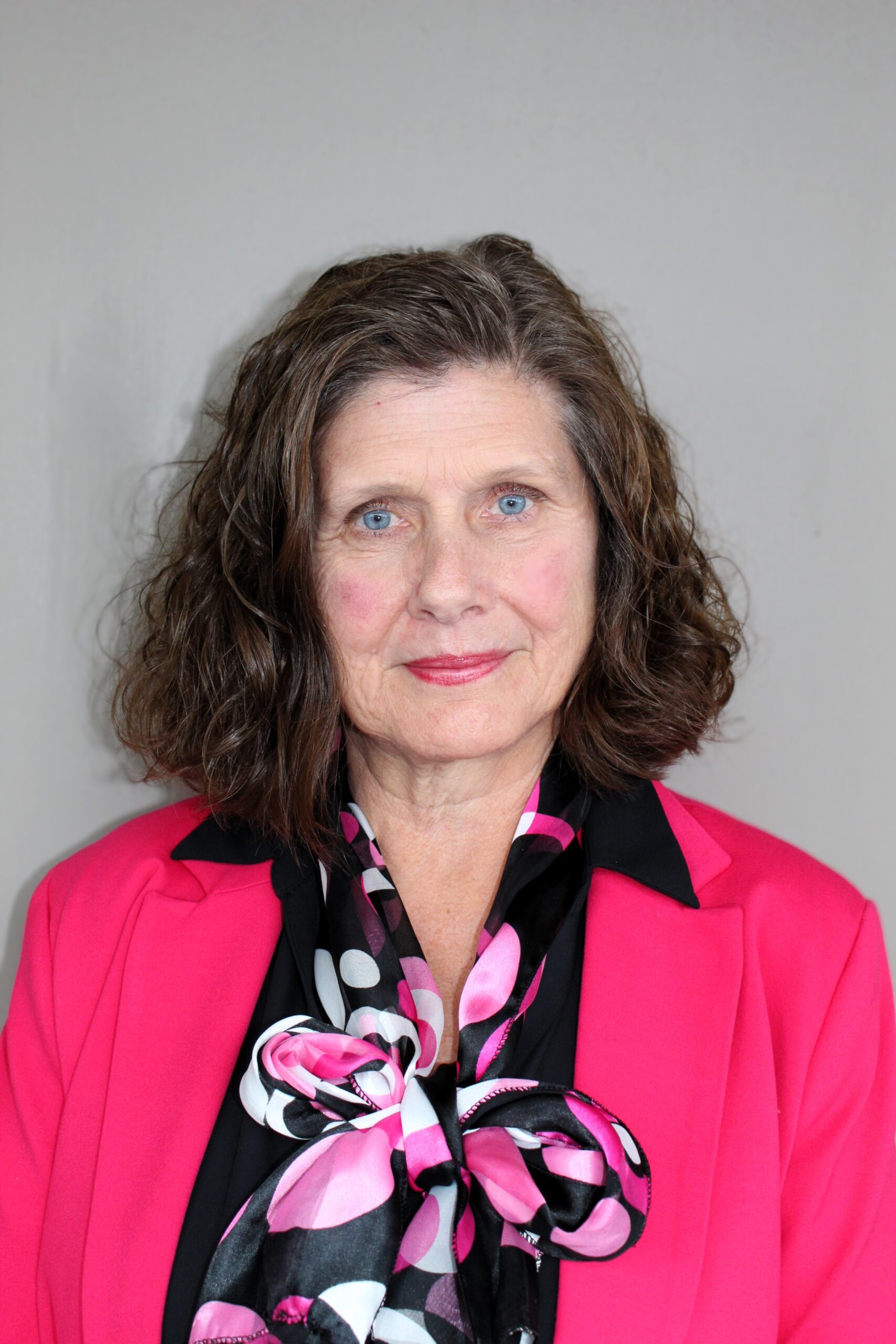
Anne Kivari
Assistant Executive Director at the Olean Housing Authority
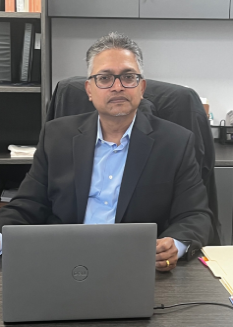
Raju Abraham
Executive Director and CEO of the Greenburgh Housing Authority (GHA)
Raju Abraham is the Executive Director and CEO of the Greenburgh Housing Authority (GHA), where he started in Finance and Accounting. He holds an Accounting degree and is a certified Section 8 Financial Specialist. Raju has served on the NYSPHADA Board for nine years and is now Senior Vice President. He is also on the Finance Committee for the Housing Authority Insurance Group and helped transition GHA to the LIHTC program.

Damaris G. Carbone
Executive Director Amsterdam Housing Authority

Bob Doeblin
Chief Executive Officer Geneva Housing Authority
Bob is the Chief Executive Officer of the Geneva Housing Authority and its Affiliate Corporations overseeing approximately 1400 vouchers and 450 additional units managed and/or owned by GHA and its affiliates. He has nearly 30 years experience working with affordable housing including Public Housing, Housing Choice Vouchers, Low Income Housing Tax Credits, Rural Development, Multi-Family and Continuum of Care Programs.
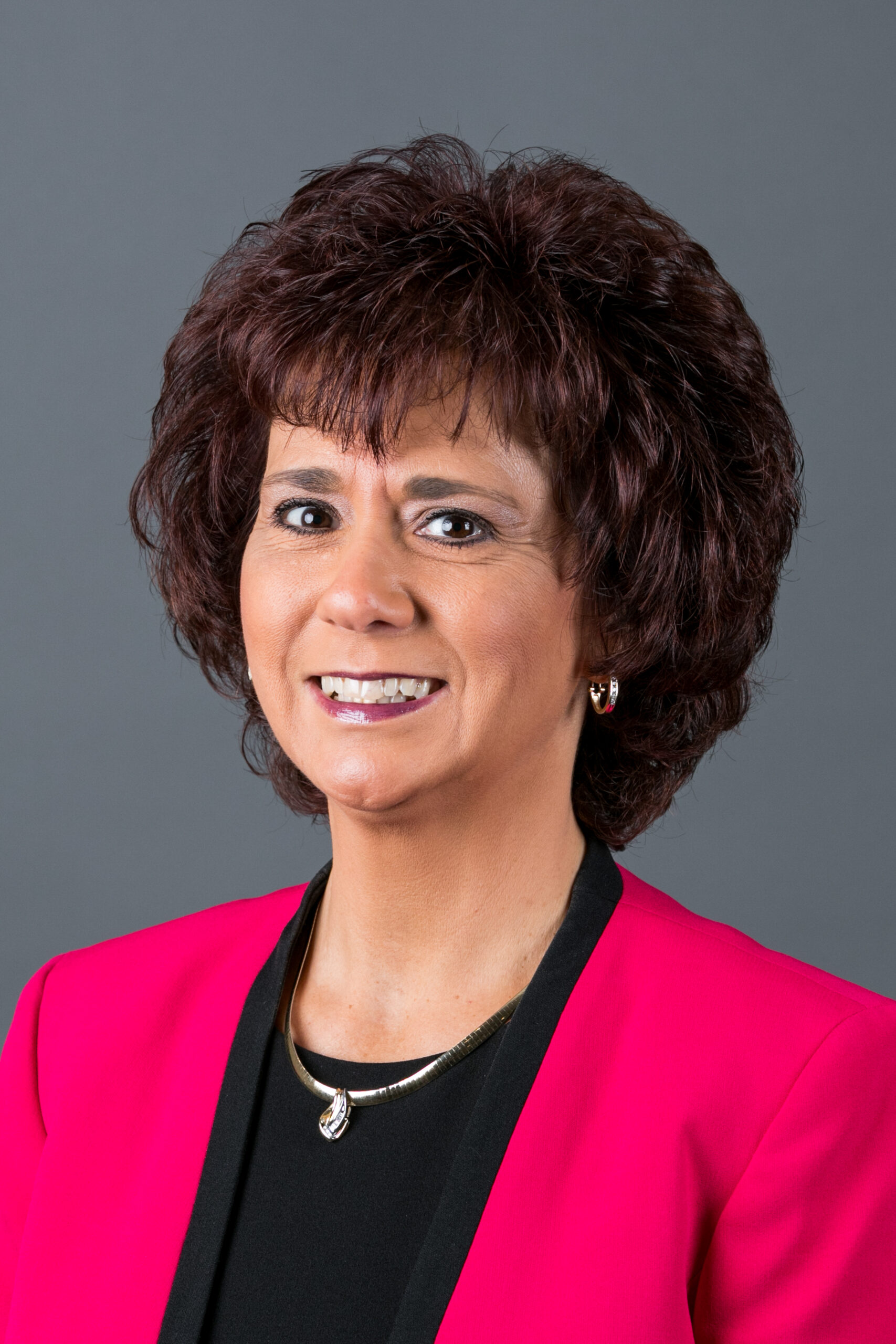
Brenda C. Westfall
Executive Director Ithaca Housing Authority
Brenda Westfall is the Executive Director of the Ithaca Housing Authority (IHA) and the President of the Cayuga Housing Development Corporation (CHDC). Brenda has been employed by the Ithaca Housing Authority since November 1989 and became the Executive Director in June 2003 after working in several management positions including Section 8 Administrator, Public Housing Manager, Deputy Executive Director, and Interim Executive Director.

Wilson Kimball
Executive Director
Wilson Kimball is the President & CEO of the Yonkers Housing Authority, managing 17 properties and 5,000 Section 8 vouchers. She previously served as Yonkers' Commissioner of Planning, overseeing major development projects and $4 billion in private investment. Kimball holds degrees from Skidmore College, Fordham Law, and Pace University, and is active on several local boards.
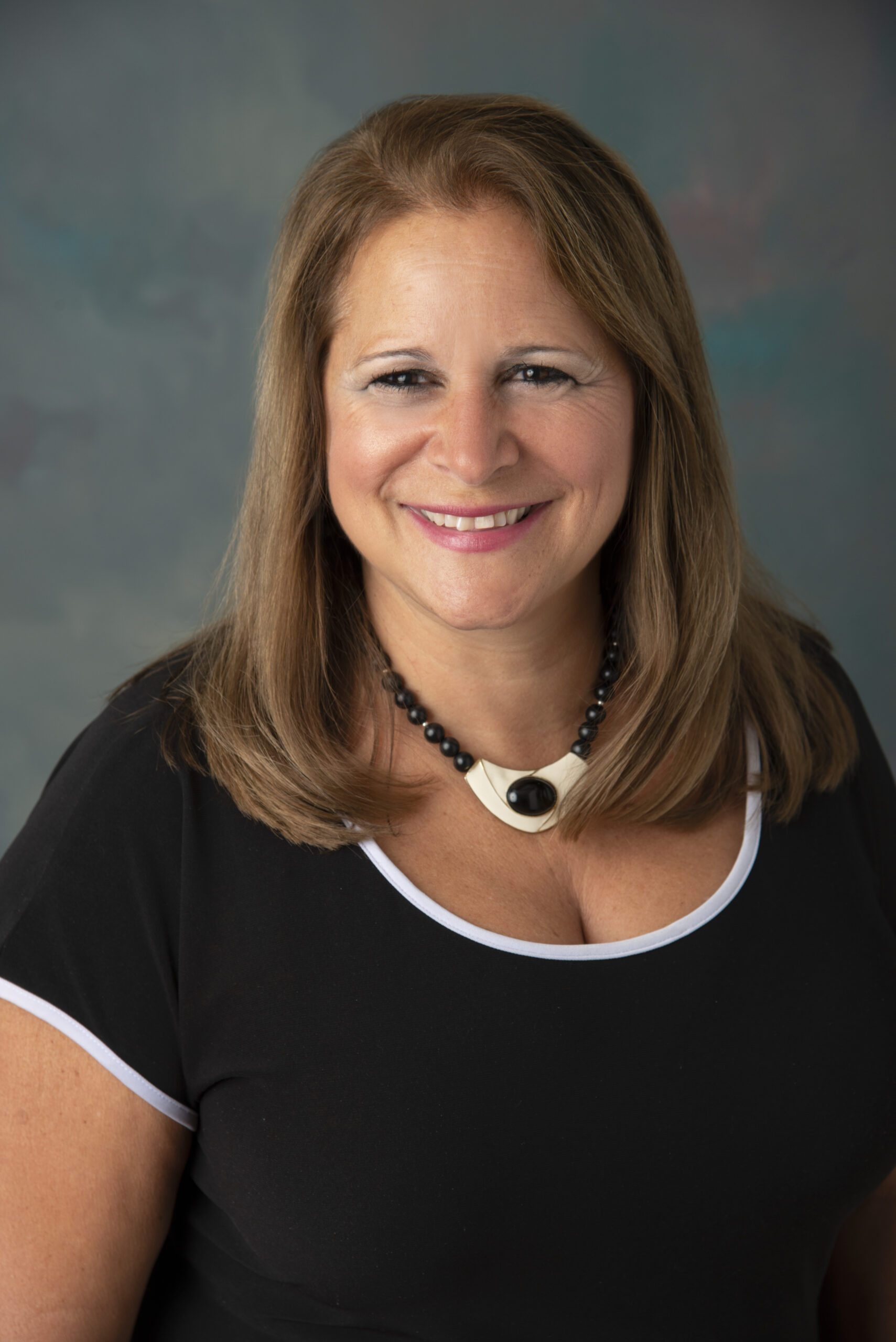
Deborah Kessler
Events Director
Deborah Kessler's position is the owner and operator of Kessler Promotions, where she serves as a marketing, public relations, and consulting expert. She also holds various board positions, including serving as chair of Leadership Mohawk Valley and on boards for organizations like Empowered Pathways and the Herkimer County Chamber of Commerce. Additionally, she has worked as a Community Development Director for Herkimer County, NY.

Janneyn Phalen
Executive Director
Janneyn Phalen is Executive Director of the Peekskill Housing Authority. Born and raised in New York, she began her housing career at age 18 as a Section 8 caseworker at Yonkers Housing Authority and has stayed in the field for 21 years (and counting!). An Accredited Residential Manager (IREM) with multiple certifications from Nan McKay, NAHRO, and NCHM, she loves leaving a mark in people's lives and empowering others. She lives with her husband and two cats, and enjoys swimming/performing as an actor/singer.
Meet Our Staff
Meet our dedicated team, who are passionate about supporting our mission and vision. Their knowledge and leadership play a crucial role in enhancing public housing across New York State.
Information Sharing/Best Practices
NYSPHADA meetings provide an opportunity to learn from each other – the spirit of give and take permeates our working sessions and social events. Expertise is shared… vendors’ services and wares are showcased… consortiums have developed that have resulted in significant financial savings.
Access
NYSPHADA works closely with our regional HUD offices and the New York State Homes and Community Renewal agencies. Top officials from these offices attend our meetings regularly, and engage in roundtable discussions with membership. Discussions range from the broadest of topics to technical answers to the issues that may affect only your authority.
Networking
NYSPHADA offers an opportunity for you to get to know your colleagues from across the State. We bring together all regions, united by our unique New York State characteristics. At each event, time is set aside for relationship-building during meals, breaks and receptions.
Our Recognition

Recognition
- NYSPHADA created the Housing Champion Award to publicly acknowledge an outstanding individual or group that has made a significant contribution to our field.
Our Federal Advocacy

Federal Advocacy
- Involvement in the Federal legislative and regulatory process continues to be a high priority for NYSPHADA. Our goal is to ensure that NYSPHADA has a “seat at the table” at all relevant legislative and regulatory policymaking discussions, in order to protect and promote our interests. Over the years, we have significantly raised awareness of our organization and our industry’s issues in Washington, DC. We continue to build our influence and position ourselves as a resource for legislators and regulators, regardless of their home States.
Our Philanthropy

Philanthropy
- NYSPHADA’s College Scholarship Award program continues to grow, with additional applicants and larger monetary awards. Applications are accepted from New York high school seniors residing in public or assisted housing units.
Education
NYSPHADA provides educational programs on topical issues at our two State-wide annual meetings and on an as-needed basis. National experts from across the country teach us how to continue to fulfill our important missions in this era of budget austerity, and how to comply effectively with the myriad of the Department of Housing and Urban Development’s (HUD’s) constantly changing rules and regulations. Real-life practitioners provide in-depth training for executive directors, staff, and boards of directors.
Policymaking and Strategic Planning
NYSPHADA Board of Directors and appointed Legislative Committee Members formally establish policy directives, after consultation with our Membership. We are always open to any Member’s views on policy issues and input on strategy.
We are able to respond quickly to changing climates in our Nation’s Capital and adjust existing policy or make new policy by conference call, if necessary. Short- and long-term legislative and regulatory strategies are crafted to meet our goals.
Goal Achievement
Our model for achieving our legislative and regulatory goals includes an effective combination of: grassroots support from the field and Membership advocacy visits to Washington, DC.
Grassroots Support
NYSPHADA Leadership can only be effective with the strong support of its Membership. Our colleagues, regardless of their demanding workloads, repeatedly respond to calls for assistance. Members are asked to call, write and visit their Senators, Congresspersons, and their key housing staffers on matters of importance to our industry. We encourage the development of ongoing relationships with elected officials, and let Membership know when it is most critical to express concerns to them through phone calls, letters and email.
The NYSPHADA President sends correspondence, on behalf of Membership, to policymakers throughout the year. We ensure that collective views on legislative and regulatory issues are well known.
Washington, DC Advocacy Visits
NYSPHADA attends legislative and regulatory conferences in our Nation’s Capital each year, with public housing authority executive directors, staff and board members from across New York. In addition, NYSPHADA leadership travels to additional meetings and speaking engagements in Washington, DC to share our viewpoints on an as-needed basis.
NYSPHADA partners with the national organizations: the Public Housing Authorities Directors Association (PHADA), the Council of Large Public Housing Authorities, and the National Association of Housing and Redevelopment Officials (NAHRO). We often work in coalition with these highly effective industry partners. However, the unique characteristics of New York make it important to have our particular needs represented to Congress and the Administration separately, as well.
In addition, PHADA and NAHRO leadership, attend our Spring and Fall meetings in New York in order to keep our Membership up-to-date on the latest legislative and regulatory situations. Specific strategies, based on the overall political climate, to deal with our federal concerns are outlined. This also provides the opportunity for individual agencies to share specific experiences as well as opinions on what existing policies and potential policy changes have or would mean to your operation. Real-life, practical examples are an invaluable teaching tool and in turn are shared with Washington, DC policymakers on your behalf.
Our By-Laws

First amendment
Amended on June 21, 1985 for the first time.
To promote and protect the public and assisted housing industry. We work together to craft and implement effective strategies to influence State and Federal policymakers. We also serve each of our members through educational opportunities, networking and information sharing.
The first Law
We adopted our first law on February 15, 1985. It was an achievement and a milestone so an important date for us. From then onwards we continue to make changes and make better our constitution.
It became our mission and vision.


Third amendment
Amended February 20, 1987
Second Amendment
Amended June 21, 1985


Fifth Amendment
Amended September 26, 1997
Fourth Amendment
Amended March 27, 1987


Seventh Amendment
Amended April 12, 2017
Sixth Amendment
Amended June 20, 2002


Eighth Amendment
Amended June 11, 2021

Education
NYSPHADA provides educational programs on topical issues at our two State-wide annual meetings and on an as-needed basis. National experts from across the country teach us how to continue to fulfill our important missions in this era of budget austerity, and how to comply effectively with the myriad of the Department of Housing and Urban Development’s (HUD’s) constantly changing rules and regulations. Real-life practitioners provide in-depth training for executive directors, staff, and boards of directors.
Policymaking and Strategic Planning
NYSPHADA Board of Directors and appointed Legislative Committee Members formally establish policy directives, after consultation with our Membership. We are always open to any Member’s views on policy issues and input on strategy.
We are able to respond quickly to changing climates in our Nation’s Capital and adjust existing policy or make new policy by conference call, if necessary. Short- and long-term legislative and regulatory strategies are crafted to meet our goals.

Article 1 – Name
The name of the organization shall be the New York State Public Housing Authorities Directors Association, Inc. The mailing address of the Association shall be wherever designated by the Board of Directors at their Annual Meeting.
Article 2 – Purpose
This corporation is formed for the purpose of conducting activities which are exclusively charitable within the meaning of Section 501 (c) (3) of the Internal Revenue Code of 1954, as may be amended from time to time, including relief of the poor, distressed and underprivileged, and promotion of the public good through programs designed to promote public health, safety and welfare by providing support and assistance to low-income and handicapped families and persons.
In furtherance, but not in limitation of the foregoing charitable purposes, the corporation shall:
- Develop and implement programs, projects and activities which provide low-income, elderly and handicapped families and persons with safe, sanitary, decent and affordable
- Develop and implement programs, projects and activities which educate and assist public housing authorities, municipalities, non-profit low-income and affordable housing developers, and the general public with respect to providing safe, sanitary, decent housing for low- income
- Develop and implement a network of statewide public housing authority directors to provide an opportunity for discussion, support, and training on issues pertaining to public housing, low-income housing and affordable housing.
- Interpret to the public the aims, functions and needs of public housing authorities with a view to better understanding and
- Provide indispensable programs and administrative services to its members.
- Conduct any and all lawful activities that may be necessary, useful or desirable for the furtherance, accomplishment, or attainment of the foregoing
Article 3 – Board Of Directors
The Board of Directors shall consist of a minimum of (9) members and a maximum of twelve (12) members and shall be elected by the membership at its annual meeting. At the first annual meeting two (2) of the Directors shall be elected to three (3) year terms; two (2) of the Directors shall be elected to two (2) year terms; and two (2) of the Directors shall be elected to one (1) year terms. Subsequently, there shall be not less than three (3) and not more than four (4) Directors elected on an annual basis.
The Board of Directors may elect Directors to serve on the Board in the event of vacancies; Directors so elected shall serve the un-expired term of the vacant position and be eligible for re-election by the membership. There shall be No limit to the number of terms a Director may serve on the Board of Directors.
Article 4 – Executive Committee
The management of the business and affairs of the Association except as otherwise provided in the Bylaws, shall be vested in the Executive Committee consisting of the following officers of the Association and the immediate Past President: President, Sr. Vice President, and Vice President for Professional Development, Vice President for Legislation, Vice President for Membership, Secretary and Treasurer.
The Executive Committee shall discharge the duties of the Board of Directors, but not incur debts, except for current expenses, unless specially authorized. It shall carry out the policies of the Board of Directors and shall report to same its acts, which shall become part of the records of the Association.
Article 5 – Officers
Only a member entity’s representatives (CEO/Executive Director or Designee) may vote or hold office in the Association. Regardless of who is designated, each member entity shall have only one vote and only one representative of that member entity may hold office. Substitute representation shall not be permitted at meetings of the Executive Committee or Board of Directors.
The officers of the Association shall be a President, Sr. Vice-President, Vice- President for Professional Development, Vice-President for Legislation, Vice-President for Membership, Secretary, and Treasurer. The officers shall be elected by the members of the Board of Directors at the first monthly meeting of the Board following the annual meeting. They shall serve for one (1) year and be eligible for re-election as officers as long as they remain members of the Board of Directors. No Director shall serve more than three (3) consecutive years for the following Offices: President, Sr. Vice-President, and Secretary. The term for the office of Treasurer shall be allowed up to a maximum of seven (7) consecutive years.
If there is JUST CAUSE to extend the term for any or all officers or postpone the election of officers, which would in turn extend the terms for existing officers, the board must vote at any meeting with a quorum present with a majority vote to approve.
Article 6 – Duties Of Officers
he duties of the officers shall be such as are implied by their respective titles and specified in these By-laws.
The President shall preside at all meetings; appoint all standing committee chairmen; act as ex officio member of all committees except the nominating committee; and serve as representative to meetings of organizations in which the Association is entitled to have representation.
The Sr. Vice-President shall perform the duties of the President in case of his/her absence or inability or unwillingness to function. The Sr. Vice-President shall be a member of the Nominating Committee.
There shall be three Vice Presidents with in portfolio as in Article 5 of the Bylaws. The three Vice Presidents shall be elected by the Board of Directors to chair the following Committees:
- Professional Development
- Legislation
- Membership
It shall be the responsibility of the Vice Presidents to serve as chairpersons of their respective committees (See Article 5) and to act as liaison with the members with respect to issues being acted upon by the Association.
The Vice Presidents shall also perform such other duties as directed by the Board. In the event the President or Sr. Vice-President refuses or is unable to act, the Vice Presidents shall assume and perform the duties of the President in the order enumerated above.
The Secretary shall keep a current and correct record of all regular and special meetings; shall receive and send all correspondence related to activities of the Association; and maintain on file all papers of value, including a copy of the By-laws, and shall turn them over to his/her successor at the end of his/her term of office. The Secretary shall be a member of the By-Laws Committee.
The Treasurer shall keep a record of all income and expenditures and give a financial report at each meeting; and shall maintain a checking account. All expenditures shall be in accordance with the approved budget. The records shall be audited by a committee appointed by the President once a year. The Treasurer shall Chair the Finance Committee.
Article 7 – Meetings
The Board of Directors shall meet bi-monthly at a date and time so designated by the Board of Directors and at other times at the call of the President or the request of any three (3) Board members providing seven (7) days written notice is given to all members of the Board. All meetings of the Board of Directors shall be at a location designated by the Board of Directors unless previously approved by resolution of the Board of Directors meeting in regular session. The Annual Meeting of the Association shall be on a date and time so designated by the Board of Directors at the Spring Conference at a location designation by the Board of Directors.
General meetings of the Association shall be scheduled by the Board of Directors. Scheduling shall include the establishment of the date, time and place. All members of the Association shall receive a minimum of ten (10) days written notice of all general meetings of the Association. The notice shall clearly state the purpose of the meeting.
Article 8 – Membership
Section 1. Qualifications for Membership – Public Housing Authority Members
New York State Public Housing Authorities (PHA’s) are eligible for agency membership in the Association upon approval by the Association of an application. PHA’s will be represented by their Executive Director/Chief Executive Officer. In the event that an Executive Director decides not to represent his/her PHA in the Association, then the Executive Director shall designate that PHA’s designee in writing to the Secretary of the Association. The member agency shall notify the association within 30 days of a change in its designee.
The Association has adopted and may amend from time to time a Code of Ethics. By joining or renewing its membership in the Association, an Authority, its Commissioners, and its Executive Director agree to be bound by that Code of Ethics as amended.
Section 2. Qualifications for Membership – Affiliate Members
Non-profit low income and affordable housing developer, or entities which are specific to the development of low-income housing are eligible for affiliate membership in the Association upon approval by the Association of an application. Affiliate members will be represented by their President or Chief Executive Officer. In the event that a President or Chief Executive Officer decides not to represent his/her entity in the Association, then the President or Chief Executive Officer shall designate that entity’s designee in writing to the Secretary of the Association. The member agency shall notify the association of such change in designee within 30 days. Affiliate members shall have all rights of membership except the right to vote, chair a committee, or hold office.
The Association has adopted and may amend from time to time a Code of Ethics. By joining or renewing its membership in the Association, an entity, its Board of Directors and its President or Chief Executive Officer agree to be bound by that Code of Ethics as amended.
Article 9 – Standing Committees
To promote communication, effect a consistent direction on housing issues, and assist in the administration of the affairs and meetings of the Association, there shall be seven (7) standing committees:
- Professional Development
- Legislation
- Membership
- Finance
- Bylaws
- Scholarship
- Nominating
- All committees, other than the Finance Committee which is appointed by the President, may be made up of Directors and non-Directors. Directors shall maintain a majority number on all standing committees. Non-Directors shall serve as a voting member on one standing committee.
Section 1. Professional Development Committee
The Professional Development Committee shall be responsible for developing a code of ethics, spring & fall conferences, educational programs, training courses and, in general, promotion of the professionalization of the members and the Association .
Section 2. Legislative Committee
The Legislative Committee shall be responsible for monitoring and reporting in a timely manner, key legislative and regulatory issues of concern to the members of the Association. Upon direction of the President and the approval of the Board, the Committee shall educate Legislators, present position papers, transmit correspondence or present testimony on issues affecting the operations of the members of the Association.
This Committee shall be responsible for review and examination of all factors affecting the general operational and management issues pertaining to a Public Housing Authority. They shall make recommendations to the Board of the levels of funding, regulations, and other interests of a Public Housing Agency.
Section 3. Membership Committee
The Membership Committee shall serve the Association by recommending to the Board methods to maintain and increase membership, guarantee geographical and minority representation and to promote meetings, seminars and publications on housing related matters of interest to members and prospective members of the Association.
Section 4. Finance Committee
The President shall appoint not less than three members to the Finance Committee which will be chaired by the Treasurer.
The duties of the Finance Committee are: (1) Assist the Treasurer in preparation of the budget; (2) Assist the Treasurer as appropriate with all duties conferred by these bylaws and the responsibilities assigned by the Board of Directors; (3) Protect the assets of the Association by annual audits and management reviews, internal control procedures, and oversee asset management activities; (4) Prepare plans and make recommendations to the Directors on carrying out the duties of the Treasurer.
Section 5. Bylaws Committee
The President shall appoint the Chairperson of the Bylaws Committee. The Bylaws Committee will consist of the Chairperson and not less than three (3) members from the most recent elected Directors. The duties of the Bylaws Committee are:
(1) To review and make recommendations for changes to the Bylaws of the Association to the Board of Directors and the General Membership on an annual basis.
(2) To enforce compliance with the Bylaws by Members, Officers and Committees of the Association.
Section 6. Scholarship Committee
The President shall appoint the Chairperson of the Scholarship Committee. The Scholarship Committee will consist of the Chairperson and not less than three (3) members. The Scholarship Committee shall recommend to the Board:
- The number and amount of annual scholarships to be awarded.
- The criteria to be used in selecting scholarship recipients.
- After receiving and reviewing applications for scholarships, the applicants to receive scholarships.
- Activities to generate publicity in connection with the awarding of scholarships.
Section 7. Nominating Committee
The President shall appoint a Nominating Committee of four (4) members not less than 150 days prior to the applicable Annual Meeting. The Committee shall consist of the four (4) most recently elected Officers.
Section 8. Other Committees
The President or the Board may from time to time create such other committees and task forces as s/he may determine to be in the best interests of the Association.
Section 9. Chairperson
The chairperson of each standing committee shall be appointed as set forth in Sections 1, 2, 3, 4, 5, 6 and 7 above or in Article 5.
Each chairperson shall appoint a vice chairperson from the committee for the purpose of conducting association business in the absence of the committee chairperson.
Article 10 – Quorum
A quorum of the Board of Directors shall be a majority of the Board of Directors. A quorum of the general membership shall be 20% of the membership whose dues are paid in full but in no case less than four (4) members.
Article 11 – Association Funds
All monies of the organization shall be deposited as determined by resolution of the Board of Directors and may be withdrawn (only by an instrument signed by the Treasurer or Secretary.) The Association shall operate with a fiscal year of January 1- December 31.
Article 12 – Membership Dues
Annual membership dues of the Association shall be as determined by resolution of the Board of Directors. This will detail Public Housing Authority membership dues and Affiliate Membership dues.
Article 13 – Public Statements
All public statements are to be issued by the President, or in the event of his/her extended absence, by the Sr. Vice-President. All public statements shall require the prior approval of the Board of Directors.
Article 14 – Dissolution Of Association
Upon dissolution of the corporation, the governing body of the corporation shall, after paying or making provision for the payment of all the liabilities of the corporation, dispose of all of the assets of the corporation exclusively for religious, charitable, scientific, testing for public safety, literary or education purposes, or for the prevention of cruelty of children or animals; or to such organization organized and operated exclusively for one or more such purposes as shall at the time qualify as exempt organizations under Section 501 (c) (3) of the Internal Revenue Code of 1954; or to the federal government, a state and local government for a public purpose.
Article 15 – Parliamentary Procedure
Robert’s Rules of Orders, Revised, shall govern this Association in all cases to which they are applicable and in which they do not conflict with these By-laws.
Article 16 – Amendment To By-laws
The By-laws of this Association may be amended by a two-thirds vote of the members present at any regular meeting, a quorum being present, provided a copy of the proposed amendment shall have been submitted to each member at least thirty (30) days before it is to be voted on.
Denise
Denise has a track record of over 22 years of executive level public housing industry experience. Prior to receiving the nod for the permanent spot, Denise successfully led the agency’s staff in both Assistant and a Deputy Director role. Denise stepped in as interim ED/CEO to undertake the Agency’s major comprehensive revitalization program, completing Phase 2 and initiating the next, Phase 3, of a multi phased undertaking to transform the Winbrook campus.
Denise’s agenda for the organization includes creating an efficient organization that’s able to build and maintain affordable housing in the future, while most importantly focusing on transparency and partnership with our residents.


Nathan Varland
Nathan Varland is the Director of the Batavia Housing Authority, a small organization in Western New York. His career has centered around helping people.
Mark Hamilton
Mark Hamilton is the Executive Director of the Plattsburgh Housing Authority, in charge of providing fiscal and regulatory oversight and guidance to a staff of 35 professionals operating and managing over 1000 total units of affordable housing. Prior to his time with the Plattsburgh Housing Authority, Mark was a public high school teacher, a high school Dean of Students and Substitute Assistant Principal at the Peru Central High School in Peru, NY. Mark previously spent time working for multiple Fortune 500 companies in Los Angeles, CA as an Executive Recruiter. Mark currently serves on the Board of the New York State Public Housing Authority Directors Association (NYSPHADA) as the Vice-President/Chair of Legislation, Peru Central School District Board of Education, Town of Peru Planning Board, Home Care of Rochester’s Clinton County Advisory Board, the Board of Behavioral Health Services North, Inc., and is the Board President of the Ted K. Center, Inc. Mark is also a contributing member of the Clinton County Action for Health Committee, Clinton County COC, NNYHOA, SPARCC, United Way of the Adirondack Region ALICE program Steering Committee, and is the Fair Housing Officer for the City of Plattsburgh. Mark is a Partner in HamilSun community solar.


